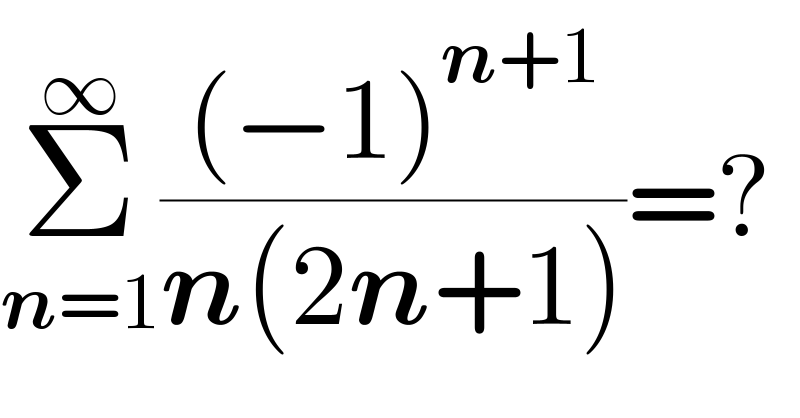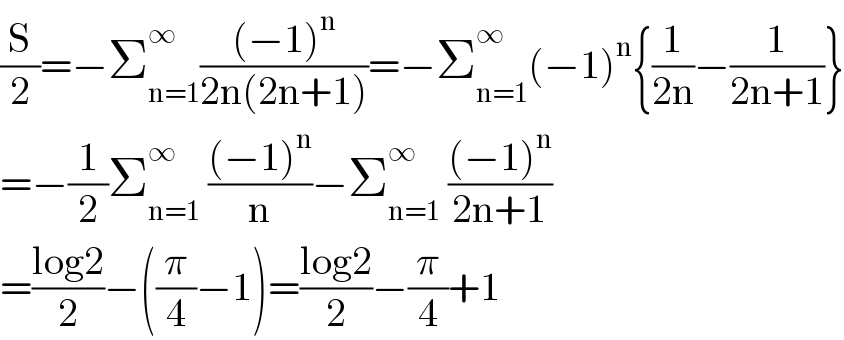
Question Number 161622 by amin96 last updated on 20/Dec/21

$$\underset{\boldsymbol{{n}}=\mathrm{1}} {\overset{\infty} {\sum}}\frac{\left(−\mathrm{1}\right)^{\boldsymbol{{n}}+\mathrm{1}} }{\boldsymbol{{n}}\left(\mathrm{2}\boldsymbol{{n}}+\mathrm{1}\right)}=? \\ $$
Answered by mathmax by abdo last updated on 20/Dec/21

$$\frac{\mathrm{S}}{\mathrm{2}}=−\sum_{\mathrm{n}=\mathrm{1}} ^{\infty} \frac{\left(−\mathrm{1}\right)^{\mathrm{n}} }{\mathrm{2n}\left(\mathrm{2n}+\mathrm{1}\right)}=−\sum_{\mathrm{n}=\mathrm{1}} ^{\infty} \left(−\mathrm{1}\right)^{\mathrm{n}} \left\{\frac{\mathrm{1}}{\mathrm{2n}}−\frac{\mathrm{1}}{\mathrm{2n}+\mathrm{1}}\right\} \\ $$$$=−\frac{\mathrm{1}}{\mathrm{2}}\sum_{\mathrm{n}=\mathrm{1}} ^{\infty} \:\frac{\left(−\mathrm{1}\right)^{\mathrm{n}} }{\mathrm{n}}−\sum_{\mathrm{n}=\mathrm{1}} ^{\infty} \:\frac{\left(−\mathrm{1}\right)^{\mathrm{n}} }{\mathrm{2n}+\mathrm{1}} \\ $$$$=\frac{\mathrm{log2}}{\mathrm{2}}−\left(\frac{\pi}{\mathrm{4}}−\mathrm{1}\right)=\frac{\mathrm{log2}}{\mathrm{2}}−\frac{\pi}{\mathrm{4}}+\mathrm{1} \\ $$
Commented by mathmax by abdo last updated on 20/Dec/21

$$\Rightarrow\mathrm{S}=\mathrm{log2}−\frac{\pi}{\mathrm{2}}\:+\mathrm{2} \\ $$
